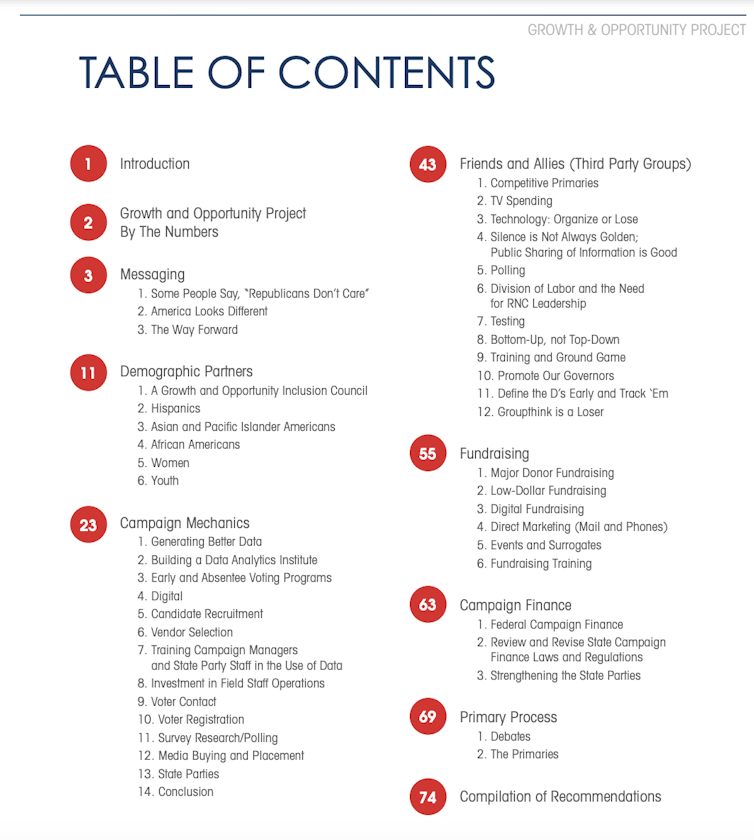According to the New York Times, “…a newly triumphant Republican president” is “once again in the headlines.”
What will it take to break through “the current national divide between a narrow but solid Republican majority and a Democratic Party that seems trapped in second place,” the Times asks. The pattern may be “solidifying” into a pattern that will “continue for years to come.” Perhaps it will take an “act of God” to break the divide, the Times wrote.
The article quotes a number of prominent historians and political scientists predicting a new era of enduring Republican electoral dominance. In the words of one, “Republicans are basically unchecked… There are no checks in the federal government, no checks in the world. They have a free playing field.”
This is not a recent view of the 2024 election. This quote is from 2004, when George W. Bush won re-election by a 2.4 percentage point margin, and is based on Donald Trump’s advantage over Kamala Harris in the November 12, 2024 election results. The difference was slightly larger than that of the previous year.
Of course, none of these predictions came true. Hurricane Katrina, the ongoing Iraq war, and the financial crisis caused President Bush’s popularity to plummet, and what was supposed to be a durable Republican majority evaporated. As a result, Democrats took back both houses of Congress in 2006, and Barack Obama was elected president in 2008.
Despite this history lesson, new doomsayers are poised to write the Democratic Party’s obituary in 2024. According to one journalist, “Democrats are a lost party. Come January, they will lose power in the federal government and have less influence in the courts and states.”
The Washington Post says, “More broadly, many Democrats believe that preliminary exit polls show that Trump is making inroads with Latinos, first-time voters, and low- and middle-income households. They see their defeat as more than just a series of tactical campaign moves.” It was a failure, but it’s evidence of a shattered party with a brand in tatters. ”
As the author of a book about how political parties respond to electoral defeats, and as the example of 2004 shows, I believe it is easy to exaggerate the lasting impact of elections. Unexpected events occur and change the political landscape in unpredictable ways. Political parties in power often make mistakes. A new candidate emerges to energize and inspire the defeated party.
zigzag
The parties themselves are often unable to figure out the best way forward.
Following Mitt Romney’s defeat in the 2012 presidential election, the Republican National Committee commissioned a so-called “autopsy” to determine how the party should move forward. The report called on Republicans to be more inclusive of women, young people, Asians, Latinos and gay Americans by softening their tone on immigration and social issues. The report was a thoughtful and thorough examination of the issues facing the Republican Party.

Screenshot, WSJ.com
Nevertheless, in 2016 Donald Trump led the party in the exact opposite direction and ultimately won anyway.
I’m not one to try to predict the 2028 election, but there are many reasons to be skeptical of doom and gloom scenarios for the Democratic Party.
First, the 2024 election was very close. Once all votes are counted, it will likely be the closest popular vote since 2000. Furthermore, there is a possibility that Donald Trump’s vote share could fall below 50%. Any defeat is difficult, but this is a far cry from the 49-state devastation that Democrats endured against Ronald Reagan in 1984.
Moreover, the 2024 results are fairly close to those predicted by election models based on economic fundamentals. This suggests that voters were not completely rejecting Democratic Party ideology, but were dissatisfied with poor economic conditions.
If people have become less enthusiastic about liberal governance over the past four years, this is natural and temporary. Political scientists have long observed the constant nature of American politics. This is a fancy way of saying that people become more liberal when a Republican occupies the White House. Conversely, under a Democratic president, Americans become more conservative. Given this pattern, it seems very likely that the population will be in a more liberal mood within four years.

Bettman/Getty Images
reflection is good
Democrats must also remember that Donald Trump is a uniquely polarizing and unpopular figure in American politics.
During his first term in office, the economy generally did well, but his approval rating never exceeded 50%. Trump himself did no favors in this regard. As political scientists John Sides, Kris Tausanovich, and Lynne Vavreck point out in their book on the 2020 election, Trump has faced issue after issue during his first term. He rejected policies that emerged and were supported by the majority of Americans, and instead chose policies that aligned only with the Republican base. . There appears to be little reason to think Mr. Trump will govern differently in his next term.
It also means that Democrats are likely to face a better political environment in 2028, since Trump cannot run again in 2028. Since 1900, out parties (parties that don’t control the White House) have won eight out of 11 races. An election in which the incumbent president is not on the ballot. In fact, the last time an outside party was unable to defeat a non-incumbent was nearly 40 years ago in 1988, when Republican George H.W. Bush defeated Democrat Michael Dukakis.
None of this guarantees a Democratic victory in 2028. Most importantly, a strong economy could be enough to propel Republicans to victory in 2028.
Nor should Democrats simply assume that everything will be fine. Self-reflection is beneficial not only for individuals but also for political parties.
Still, the lesson of history is that Democrats would do well to resist the temptation to crush their defeats. Instead, they may consider using the Serenity Prayer as a guide for the next four years. “Give us the serenity to accept the things we cannot change, the courage to change the things we can, and the wisdom to know.” The difference. “



